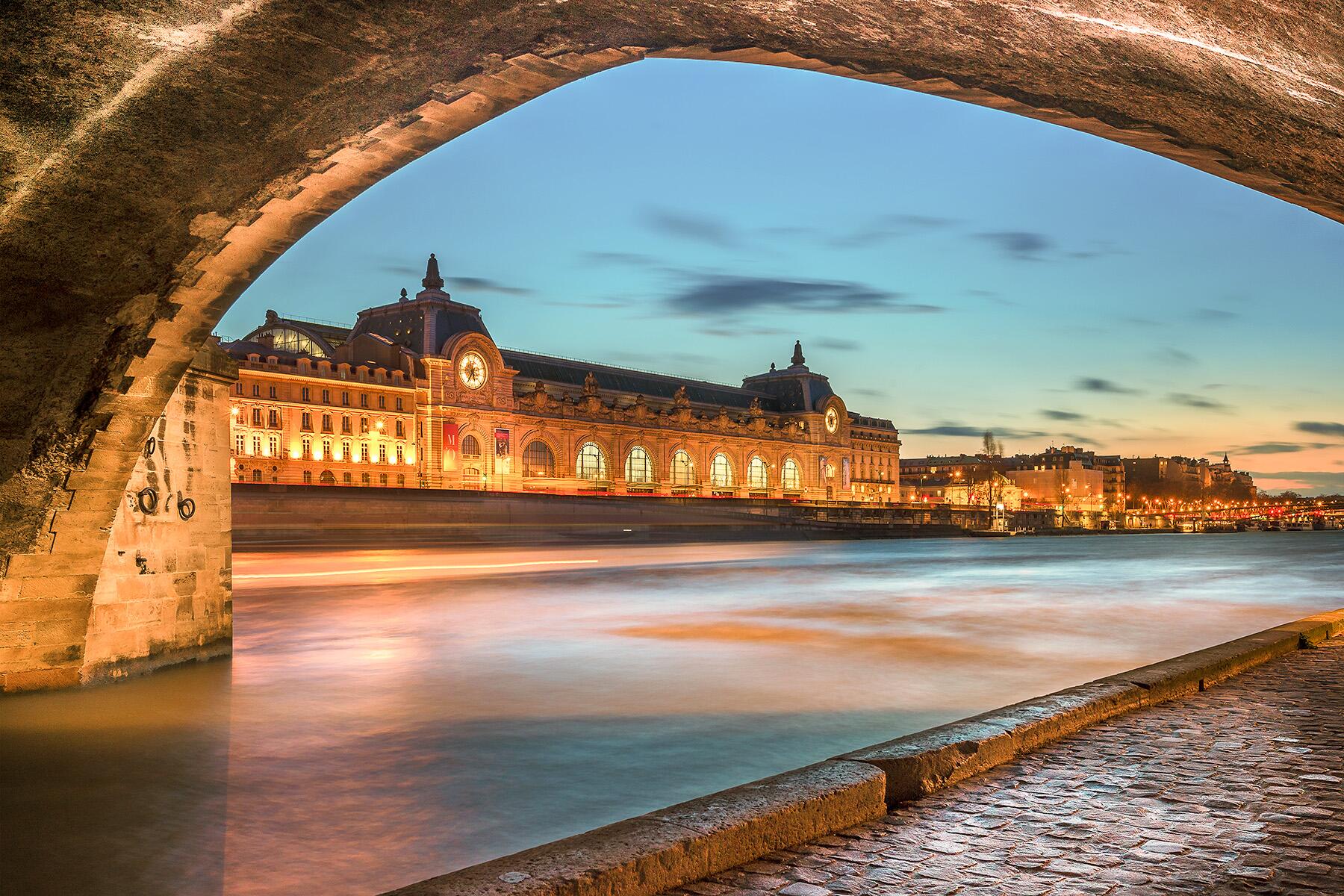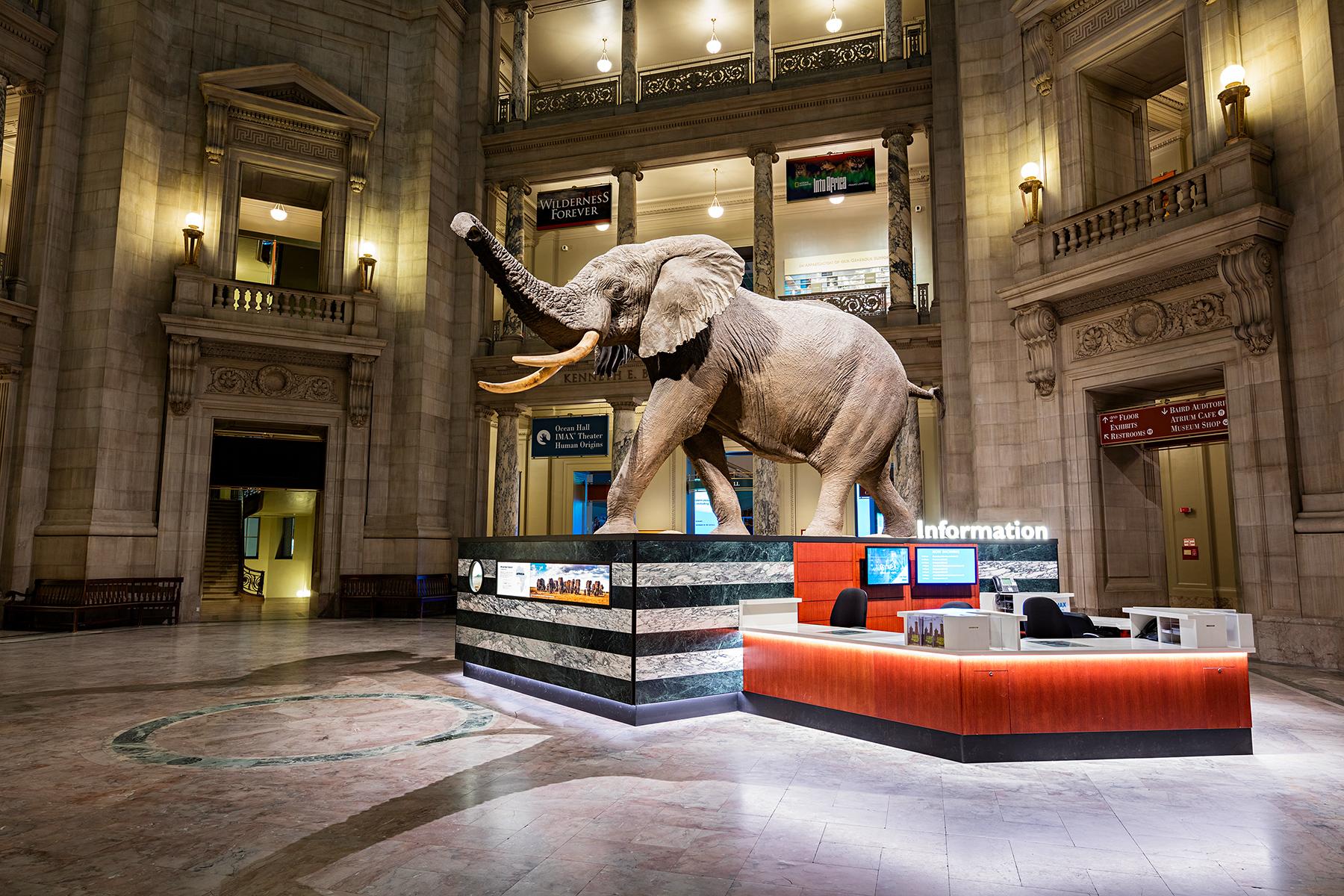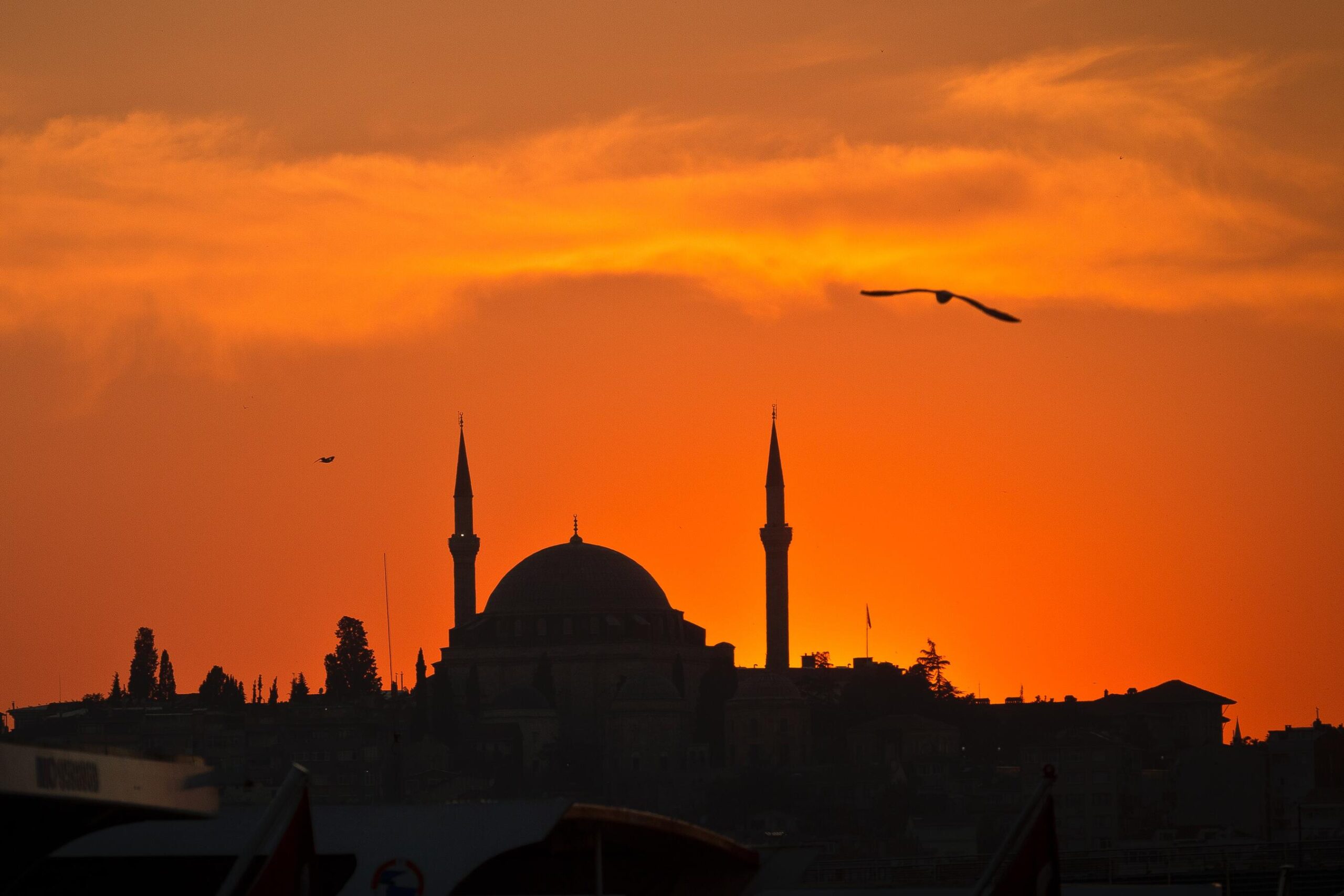If you’re considering visiting a Muslim country during Ramadan, read on.
I often hear non-Muslim travelers discussing Ramadan in terms of restrictions: no food and drinks during the day, no alcohol, and no nightclubs, for example. But if you ask people living in Muslim-majority countries whether you should visit during Ramadan, there is a good chance they’ll reply with an enthusiastic “Yes! Ahlan wa Sahlan (Welcome).”
While fasting is an important part of the holy month, there is so much more. Ramadan is also about community, generosity, spirituality, and quality time with family and friends. And for many people, it is a time of hope, growth, and celebration.
Traveling to a Muslim country or a country with a sizeable Muslim population during Ramadan can be an extra special experience—if you are prepared. We’ve gathered insight from Muslim practitioners and tourism experts around the world to help you decide if traveling during Ramadan is right for you.
When Is Ramadan?
Ramadan is observed during the ninth month of the Islamic lunar calendar when it’s believed God revealed the first verses of the Quran. But the exact dates shift yearly as the moon determines the start and end.
Muslims observe the sacred month in various ways, including fasting from sunrise to sunset, donating to charities, participating in prayers, reading the Quran, and spending time with family. Some also focus on making changes, such as creating healthier habits and a closer relationship with God.
Recommended Fodor’s Video
Which Countries Observe Ramadan?
Forty-six countries have a majority Muslim population, and of those, half have declared Islam the state religion, including the Maldives, Jordan, Morocco, Saudi Arabia, Egypt, Malaysia, and the United Arab Emirates. But those are not the only countries where you’ll find Ramadan celebrations and possible restrictions.
Although Islam originated in the Middle East-North Africa region (and about 20% of the world’s Muslims still live here), you can expect to find large populations of Muslims in Asia-Pacific as well—with more than 60% of Muslims living in the region, including Indonesia, Turkey, India, Pakistan, Iran, and Bangladesh. There are also growing populations of Muslims in Europe, North America, and elsewhere.
Nearly one-quarter of the world’s population identifies as Muslim, and it is the second-largest religion, so there is a chance that anywhere you travel, you may encounter people participating in Ramadan traditions during the holy month. As a general rule, be considerate wherever you roam.
What Is It Like to Travel to a Muslim Country During Ramadan?
Religious traditions, legal restrictions, and cultural expectations vary from country to country, but here are some things to consider.
Hours of Operation
With many local people following a prayer and fasting schedule during Ramadan, business hours may be impacted. In general, tourist sites in most places remain open, but some close early to allow staff to return home in time for iftar (the evening meal to break the daily fast).
Many businesses, such as restaurants, banks, markets, and clothing stores, reduce their hours during Ramadan while people focus on their families and spiritual practice, resting, and preparing dishes for iftar. In some places, finding food during the day outside of resorts and larger restaurants can be challenging.
The upside is that many businesses extend their evening hours to accommodate people out and about after iftar, so it’s common to see many stores, restaurants, and malls open later during Ramadan. This means you can visit a heritage site by day, then shop for souvenirs and dine out at night.
Traffic and Crowds
Tourist sites tend to be less crowded, even “deserted,” as Alieya Alie Kargbo, owner of Tourism Is Life Tours, says of the beaches and tourist areas of Sierra Leone during Ramadan. And traffic may be noticeably quieter during the day in places where Ramadan is observed—up until the hour or two before sunset when people will be heading to a mosque, shopping for iftar supplies, or traveling home or to a restaurant to break the fast.
Limitations on Alcohol and Entertainment
Alcohol and entertainment are restricted to varying degrees, depending on the location. In some places, bars, clubs, and liquor stores are completely closed during Ramadan. But in many countries, there is a mix of options and restrictions. For example, in Jordan, liquor stores, bars, and clubs are closed during Ramadan, but alcohol is available at 5-star hotels, resorts, and some bars located in hotels that have special permission from the government.
Even within a country, the rules may vary. Some restrictions are based on nationality—Basem Salah, managing director of Gateway to Egypt, says alcohol isn’t served to Egyptian nationals during Ramadan—while others are based on location. For example, Sonu Yadav, a sales account manager at the travel platform Voyagu, says that in India, alcohol is available except for businesses close to mosques or other religious sites. And in Turkey, Alper Ertübey, the founder of Hike’n Sail Turkey, says bars generally remain open, but some restaurants may not serve alcohol, especially during iftar hours. He also says there may be more restrictions in rural places and locations in central and eastern provinces that are less touristic. In larger cities and resorts along the Aegean and Mediterranean coasts, it’s business as usual.
Festivities
While alcohol-related activities may be limited, there is another type of nightlife during Ramadan. “It is a special time when visitors can see street decorations and will feel a generally festive mood,” Salah says.
People gather to break the fast after the sun sets, and many stay awake late, sometimes until suhoor (the meal eaten before sunrise and the first prayer), so the streets come alive with activity, festive lights, and night markets. “There is a truly special atmosphere during Ramadan,” says Hala Benkhaldoun, Intrepid Travel’s general manager in Morocco. “In a country already known for its hospitality, it reaches another level during Ramadan.”
In Dubai, residents and visitors shop artisan goods, dine on Arabic and international eats, and enjoy live performances at the Ramadan Night Market. In Malaysia, Grace Chan, the general manager of Borneo-based tour operator Sticky Rice Travel, says Ramadan Bazaars are a popular place to gather and sample local Ramadan dishes such as bubur lambuk, a spiced rice porridge.
Even in countries that are not considered Muslim but have a high population of Muslims, such as India, you can find this festive vibe after sunset. Yadav, who grew up in Lucknow, where Islam is the second most popular religion after Hinduism, says that the Ramadan midnight food market there is a memorable, must-do experience.
Tips for Traveling During Ramadan
Here is some expert advice for planning a trip during Ramadan:
1. Research Your Specific Destination
Ramadan-related activities and restrictions vary, so even if you’re a fly-by-the-seat-of-your-pants traveler, it’s important to understand the specifics of the country you’re visiting.
In Morocco, for example, Benkhaldoun says there are few disruptions to travel. In the Maldives, it depends on where you stay—Ruth Franklin, the co-founder of Secret Paradise Maldives, says that resort islands are unaffected, whereas nearly every aspect of life on the local islands is impacted during Ramadan.
“Local restaurants are closed during daylight hours. Businesses and government offices are only open four hours per day. Local ferry and speedboat schedules change. Everything will close or stop operating during iftar. Full-day excursions may be limited, allowing locals to start later in the day or return home for iftar.” Franklin still recommends visiting a local island, however. “The guesthouses and hotels do offer food and beverages for tourists. Even if the main part of your holiday is a resort stay, exploring a local island for one or two nights is the ideal way to experience the real Maldives.”
And then there are places like Albania, a Muslim-majority country, where you’ll find a completely different experience. Ricardo Fahrig, an adventure concierge at Zbulo! Discover Albania, says that a history of outside occupation and communism (and banning of religion during that period) resulted in two-thirds of the population not practicing religion. “As such, Ramadan isn’t noticeable for most visitors.” But, he says, it is a religiously diverse and tolerant place. “The majority of Albanians celebrate Muslim, Catholic, and Orthodox feasts, which are also recognized as public holidays, no matter one’s religion. Today, Ramadan in Albania has less of a religious connotation and is more of a social gathering, an opportunity to connect with family and friends.”
Blerina Ago, the founder of adventure tour operator Active Albania, encourages travelers to visit during Ramadan.
“There is an ancient saying, ‘The house of the Albanian belongs to God and to the guests,’ which speaks to the country’s strong tradition of hospitality,” Ago says. “Hospitality in Albania transcends religious beliefs and is deeply ingrained in the culture. Visiting Albania during Ramadan can be a fascinating experience, as it challenges the common perceptions that tourists might have about a country with a Muslim majority.
While tourists may not always notice it, people of different faiths support those fasting during Ramadan. For instance, colleagues might take on additional work to lighten the load for their fasting coworker, or meetings are scheduled in the evenings when the fasting person can eat. These gestures are often done without being asked and are a testament to the country’s commitment to religious tolerance and harmony.”
2. Enlist the Help of a Tour Operator
A local expert will know the destination—and any Ramadan customs, rules, and expectations—best. You don’t have to sift through it all alone. “Contact a local guide or tour operator before visiting,” says Hazim Toubassi, head bartender at District Urban Rooftop in Amman, Jordan. Guides can also lead you to authentic experiences. “On the local islands in the Maldives, Ramadan becomes a way of life, and it’s not just about fasting,” Franklin says. “Traveling with a guide allows guests to immerse themselves in Ramadan in a way they may not be able to elsewhere.”
3. Call Ahead
Given that hours of operation tend to change during Ramadan, it’s always best to check in for updated hours before you travel. And be sure to book dinner reservations in advance—even in places not considered Muslim-majority, such as Kosovo. “Ramadan is not an official holiday in Kosovo, so sights will be open. However, during the breaking of the fast, some smaller shops may be closed, and you will not find a table in a restaurant without booking ahead,” Virtyt Gacaferri, CEO of Balkan Natural Adventure, says.
4. Time Your Travels
When planning your itinerary, keep in mind the fasting and prayer schedule. Aim to avoid the pre-iftar traffic. “If you have a flight to catch during iftar hours, give extra time for commuting to the airport,” Ertübey advises. And avoid visiting mosques during prayer times and on Fridays. “Mosques will be crowded, especially in the evening,” Fatos Katallozi, destination manager of Outdoor Kosova, an adventure tour operator in the Balkans, says. “Visit in the afternoon instead.”
5. Dress for the Occasion
Even if a strict dress code is not legally enforced where you’re traveling, Parul Sinha, the director of Sacred Dot Tours, a destination management company in India, the UAE, Oman, Sri Lanka, Nepal, and Bhutan, says it is best to dress conservatively during Ramadan.
The majority of the experts we spoke with echoed this sentiment, with the exception of coastal resorts in some countries where swimwear may be acceptable at the pool and beach (but best to ask your hotel directly before traveling). “Since it is a month where religion and Islam are at the center, Moroccans will dress more conservatively than the rest of the year, and travelers may want to do the same as a mark of respect,” Benkhaldoun says.
Kargbo also recommends that women bring a scarf to easily cover their heads as needed, especially if they plan to visit a mosque.
6. Mind Your Manners
As a general rule, Majdi Kohof, a tour guide in Jordan, recommends that visitors refrain from eating, drinking, and smoking in public during daylight hours out of respect for those fasting. All of the experts agreed on this point, again with the exception of resorts where visitors may be permitted to go about their day without restrictions. Franklin and Kargbo suggest preparing snacks or a lunch if you will be traveling in areas where restaurants will be closed during the day.
Sinha also suggests being thoughtful about other ways you behave in public. “Avoid using bad language, don’t play loud music, do not get angry or indulge in public displays of affection as it is uncomfortable for people observing Ramadan,” she says.
Try to be understanding if people seem a bit moody, as Tariq Faqeeh, a handyman and driver in Amman, Jordan, says—particularly at the start of Ramadan when they may be experiencing caffeine and nicotine withdrawals in addition to feeling thirsty and hungry. “People who are fasting and have jobs that require guest services are likely not to have as much energy as they typically would, making it difficult to deliver,” Kohof says. Kindness and compassion are appreciated.
7. Say Yes
One of the best ways to understand more about Ramadan is to meet with locals—at a mosque (arrange ahead as not all mosques are open to the public) or for iftar.
In Dubai, for example, you can learn about wudhu (cleansing before prayer), Islam, and Emirati culture at Jumeirah Mosque. And in Albania and the wider Balkans, mosques are open to everyone, Fahrig says. “Most locals are happy if you take an interest in their culture and will be happy to answer questions and share insights. You may end up being invited to a communal gathering or family home. This is a great opportunity to connect with locals and immerse yourself in local culture.”
All of the experts echoed this point (and I agree, as it’s one of my favorite experiences in Jordan): say yes to iftar invitations.
“Iftar time is an exciting moment to await each day,” Jana Talli, a student at the American University of Madaba in Jordan, says. “We share memories and stories together, and it’s a phenomenal time for friend and family bonding.”
You do not have to be Muslim or fasting to join the celebration, and it’s a rare opportunity to participate in a tradition you won’t see during the rest of the year. “During Ramadan, you have a chance to experience [Muslim] rituals,” Toubassi says. “Get in touch with locals. Many like to share food with others when breaking the fast and explain more about their religion and traditions.”
Even if you don’t receive an iftar invitation, there are various ways to participate, from public iftar street tents in Jordan to iftar and stargazing excursions in Al Ula, Saudi Arabia, to fine dining events such as Iftar at Dubai Opera. Fahrig recommends visiting Skanderbeg Square if you are in Albania on the final day of Ramadan. “Thousands gather to celebrate the end of the month-long fasting with a special prayer. This may be the best public space in Albania to observe the special mood.”
You can also experience Ramadan vibes by walking through a night market or strolling the lively streets of the old downtown in Amman, as Faqeeh suggests. Be sure to taste treats that are specially prepared for Ramadan. “There are many cafes and restaurants downtown where you can have sweets such as qatayef (a dumpling filled with cream or nuts) and juices like tamarind and amar el din (a juice made from dried apricots),” Toubassi says. Or, for a more contemplative activity, Benkhaldoun recommends simply taking a walk during the call to prayer. “Feel the atmosphere of empty streets,” she says. “I love to do this myself from time to time. You feel a special serenity.”
8. Embrace the Giving Spirit
One aspect of Ramadan that travelers may not be aware of is charity. “Get in the Ramadan spirit of giving,” as Ago says. Consider donating to local charities and ensure your tourism dollars go to local businesses. By simply traveling during Ramadan—in what Benkhaldoun says is the off-season for some places—you are contributing to the local economy.
9. Consider Your Travel Style and Priorities
Whether you should travel to a Muslim country during Ramadan depends on you. If your priority is clubbing or if you’re an inflexible traveler, for example, it’s probably not the best fit! But if you’re keen on cultural experiences and you are flexible and open, it is a unique time for unforgettable experiences. As Ago puts it, just bring “a smile and the curiosity to discover an ancient culture and meet with welcoming people.”




